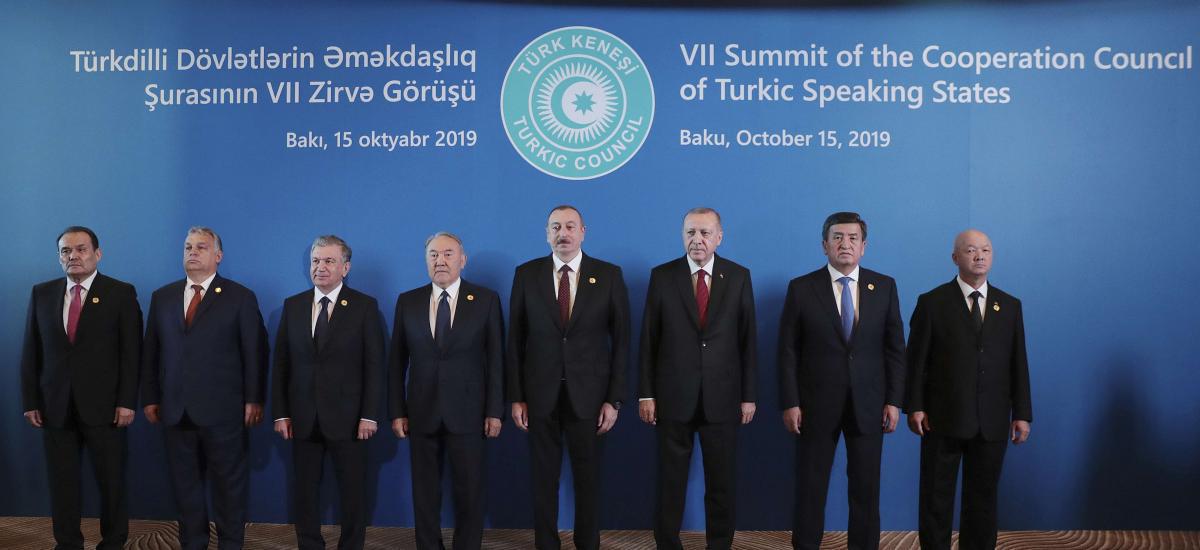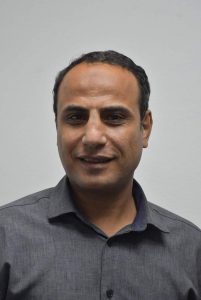During the eighth Turkic Council summit on November 12th in Istanbul, Turkish President Recep Tayyip Erdogan announced the transformation of the Turkic Council, which was established in 2009 and includes the Turkic-speaking countries, into the Organization of Turkic States. Erdogan spoke of broad prospects for strengthening political, economic, and cultural ties. The summit also witnessed the ratification of the twenty-year vision document, and the approval of a number of projects that would bring the countries of the region together, at the forefront of which is the Silk Road project, and the completion of new railway projects, including the implementation of a railway project linking Kyrgyzstan, Uzbekistan, and China. The rise of Turkey’s influence in Turkish-speaking countries would neutralize some of the international pressures on Turkey, but it would also, on the other hand, further complicate some of the region’s conflicts
Extensive Support
In recent years, Ankara has sought to strengthen cooperation with Turkish-speaking countries, to consolidate its influence in the Caucasus region. It draws on ethnic links with the peoples of these neighboring countries, as well as the religious-sectarian factor, which has become Turkey’s trump card for expanding its geopolitical influence in the Caucasus region. Turkey’s activity in this region is consistent with its overall foreign policy, which focuses on maximizing its presence in its regional neighborhood, and its engagement in many regional issues, in order to enhance its influence and obtain political, economic, and military gains.
In this context, Turkey established the Turkic Council in 2009, and it was officially announced on September 15th, 2010. The council includes Turkey, Azerbaijan, Uzbekistan, Kyrgyzstan, Kazakhstan, and Turkmenistan, with Hungary as an observer. These countries provided a fertile environment for Turkish engagement in the region of Central Asia. Since its inception, the council has held eight summits, with Ankara injecting significant funds to establish its leadership role, with many official visits and bilateral agreements. Turkey, in cooperation with the Turkic Council countries, has also established a set of mechanisms to facilitate cooperation, such as the Assembly of Parliaments of Member States, the Turkish Business Council, the Turkish International Academy and Culture Organization, and the
Union of Chambers and Commodity Exchanges of Turkey. The Turkic Council’s Chamber of Commerce and Industry was established in May 2019 in the Kazakh capital, Nur-Sultan.
Successive Turkish governments have also maintained strong political relations with these Turkic-speaking countries, and the Turkish private sector has made significant economic investments there. Turkish NGOs have been active, as well as religious entities, especially Diyanet , the Directorate of Religious Affairs, which has built mosques and religious schools in Central Asian countries. Notable among these is the Bishkek Central Mosque, which was designed according to the tradition of Ottoman architecture and was opened in September 2018.
Significantly, military and security issues have become increasingly dominant in Ankara’s relations with the Turkic-speaking countries. In October 2020, Turkish media called for the creation of the Unified “Turan” Army. These calls came in conjunction with the visit of Turkish Defense Minister Hulusi Akar to Kazakhstan and Uzbekistan, where he discussed steps to expand military-technical cooperation, which is in line with Ankara’s military support to its allies in the Turkic Council. On November 17th, 2020, the Turkish Parliament approved a presidential memorandum regarding sending troops to Azerbaijan for a period of one year, to help Azerbaijan in the conflict that broke out in September 2020 with Armenia regarding sovereignty over the Nagorno-Karabakh region. It also signed a strategic and military cooperation agreement with Azerbaijan in June 2021, in which the two countries pledged to support each other in case of threat or attack from a third country.
Multiple interests
Turkey’s interest in developing the capabilities of the Turkic Council and transforming it into a regional organization can be explained by several considerations, the most prominent of which are:
- Enhancing economic gains: Turkic countries represent an economic priority for Ankara, and their importance has lately increased, given the worsening economic crisis and the negative impact of the COVID-19 pandemic on economic sectors. These countries represent a wide market for Turkish exports, with more than 250 million inhabitants. The combined national income of Turkic states is more than USD 2 trillion, while their combined GDP is USD 3.8 trillion, with purchasing power parity. The volume of mutual trade stands at USD 20 billion. According to the statistics from the Turkish Ministry of Foreign Affairs website, the total volume of trade between Turkey and Turkic Council countries in 2019 amounted to more than USD 8.5 billion. With about 4,000 Turkish companies operating and investing their capital in these countries, total investments of Turkish companies in member states in December 2017 were estimated at more than USD 13 billion.
- Creating “Greater Turkey”: Turkey seeks to restore the legacy of the Ottoman Empire. Its decision to transform the council into the Organization of Turkic States is an important way to market its imperial project, as it underlines the bloc’s growing political influence and the possibility of employing it to serve the goals of the Turkish project. At the same time, it provides impetus, and ensures longevity, for Turkey’s ruling party. Since its establishment more than ten years ago, the Turkic Council has provided a conducive environment for spreading the Turkish lifestyle, which combines Islamic traditions and Western values. It has also allowed the promotion of the political values of the Turkish regime in Central Asia. Turkey’s orientation towards Central Asia reflects a new policy that focuses on Turkic-speaking republics, as this aligns with the Turkish President’s ambitions to restore a “Greater Turkey” or the Ottoman legacy.
In its attempts to restore these republics to what was the Ottoman sphere, Turkey draws on common ethnic and cultural roots, and historical ties with the peoples of the region, in a bid to formulate a new Ottoman identity. It has expanded its relations with Turkic Council states, consolidating political influence, as well as shared identity, and historical Ottoman legacy. It is noteworthy that the Turkish ruling Justice and Development Party published, early this year, what it called a “Greater Turkey Map”, including the north of Syria- an area amounting to a third of that country’s total area- a large area of Iraq, as well as large parts of Central Asia, all the way to the Caucasus. - Reasserting Turkey’s influence in the Caucasus: The process of transforming the Turkic Council into the Organization of Turkic States is part and parcel of Turkey’s efforts to protect its traditional diplomatic, economic, and security interests in the Central Asian region, and to counter the growing influence of other major international powers. The establishment of a multi nation Turkic organization is closely linked to this competition for influence in this region, as Turkey fears the reassertion of Russia’s historical role in this region, as well as China’s newer, but rising, influence.
- Expanding options in the face of international pressures: The announcement of a Turkic “organization” is also related to Turkey’s efforts to expand its options in the face of growing international pressures and alleviate their stress. It was notable that President Erdogan brought up several political issues in his speech at the opening of the summit of the Organization of Turkic States on November 13th. Most significantly, he spoke of the organization’s support for the Turkish Republic of Northern Cyprus. The establishment of this Turkic organization is also a card Turkey can use to counter growing Russian pressure on its interests in Syria. Moreover, it widens Turkey’s options in the context of differences with Washington over acquisition of the Russian S-400 defense system, and tension with some European Union countries, especially France, over Turkish activities in the eastern Mediterranean and Libya.
Important foothold
In conclusion, it can be argued that renaming the Turkic Council as the Organization of Turkic States reflects Ankara’s desire to use this group of countries as an important foothold, which it can use to strengthen Turkey’s position in Central Asian, and an attempt to achieve a “victory” in the context of waning influence.


